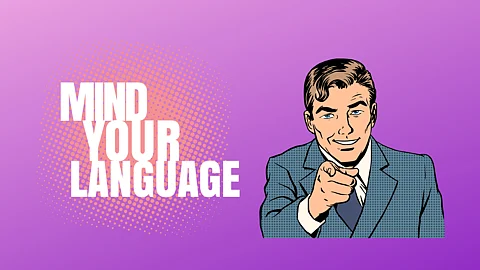

Image Credit: American Legal Magazine
If there’s one industry with a reputation for impenetrable language, it’s the legal profession. In fact, even some of the most negative terms people use to criticize complex writing come from the legal industry. Be honest: Words like “legalese” and “fine print” are rarely used to describe a positive reading experience.
And, don’t think it’s just lawyers who are tough critics. The medical industry might run a very close second. Finance, IT and – of course – government are also prime suspects when it comes to “murdering” the language.
Whatever your field, a great deal of your marketing, content and other communications are most likely intended to be read by regular folks unfamiliar with your arcane lawyering, doctoring, financing, wizarding (or whatever) ways.
If you’re reading this, it’s a safe bet that you’re capable of reading at a university or academic level. You probably bear the scars of all of those late nights reading textbooks full of language so dense that light struggles to escape. And then you’re also instructed to write your papers in a similarly academic style, including references. No wonder so many professionals and executives continue to write this way, particularly when trying to give off the aura of authority.
But the average person in the U.S. reads at a seventh- or eighth-grade level. Consider for a moment who the target audience is for your content. For starters, it isn’t you. Most of the time it won’t be your industry contemporaries either. Chances are it’s the aforementioned average U.S. person. So maybe stop using so much over-formal or confusing language that it makes you sound like a Victorian bank manager.
Even if your ideal audience can read at an astonishingly high level, it doesn’t necessarily follow that they want to. Reading takes effort. Words place a much greater cognitive load on the brain than images do. The more complex your writing, the harder you’re asking the reader’s brain to work and the greater the chances they’ll switch off after the first few paragraphs. Remember, you only read those university text books because you had to. But no one has to read your marketing. No one has to read your website.
Let me be blunt: If the reader has to go back over a sentence to decode the correct meaning, then your writing has failed. If the reader decides it’s too much effort to push beyond the opening paragraphs – never mind make it to the end – then your writing has failed. If the reader misinterprets your message or draws the wrong conclusion, then your writing loses its intention.
Professional writing is that which is easily read and understood – but it takes effort to write what is effortless to read.
I’ve written all kinds of things for all kinds of employers and clients. Sometimes it’s web copy and e-books for a scrappy startup eager to stand out with a tone and style that screams, “We’re not like those other guys.” In these cases, my challenge is usually making sure things don’t get too scrappy. Grammar matters. Fact checking matters. Rules matter.
Other times, it’s whitepapers and marketing collateral for a major corporation, some of which seem determined for their content to adopt the same supposedly “professional” tone as every other corporation out there – including their competitors. And by “professional” I mean “as bland, banal and bloodless as possible.”
Believe me when I say it’s usually a senior corporate stakeholder who crosses out my carefully chosen words to replace them with variations of “enterprise-grade solution” and “best-of-breed innovation,” arguing that this is somehow “more professional.” Buzzwords and clichés like these only seem more professional to some ears because they can be found on pretty much every other corporate website – including their competitors. As such, these words become meaningless. They signal to the reader that the business is eager to appear professional but can’t actually articulate why the reader should believe it. This kind of empty language certainly doesn’t help someone understand why they should go with this business instead of that one.
So ditch the corporate language and use human language instead. If you find yourself typing “utilize” instead of “use,” you may as well save yourself the extra four letters, because the meaning is exactly the same. If you wouldn’t use the word in normal conversation, it probably doesn’t belong in your writing either.
Conversational language is the language of thought. And don’t you want the reader to think about what your copy is saying?
I have one final tip, but I think it’s an important one: If the task of writing the copy is boring, the task of reading it will be too.
Good writers enjoy the challenge of finding the right words or coming up with a fresh turn of phrase. So, give yourself (or your writers) permission to play with words, to be colorful with language, to find the most interesting way of getting the point across instead of the most predictable. It’s easier to tweak or tone down a draft that’s a little too lively than it is to breathe life into copy that never had a pulse to begin with.
This article originally appeared on American Legal Magazine.
